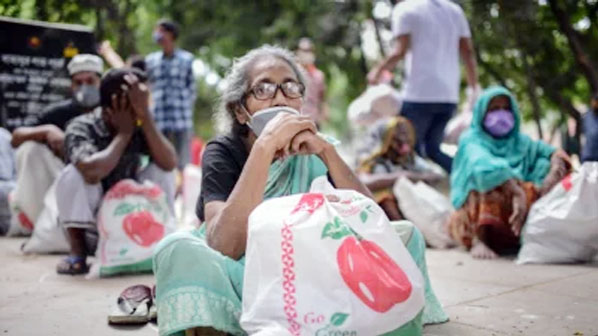
Dr. Md. Shamsul Arefin :
The rising prices of essential food items, such as eggs, vegetables, potatoes and other agricultural products have become a pressing issue in Bangladesh.
The increasing cost of these staples places a heavy burden on consumers, especially those from low-income households.
Several factors contribute to price hikes, including inefficiencies in the supply chain, poor infrastructure, seasonal variations and influence of middlemen, hoarding and finally extortion on roads.
However, there are ways to address these challenges and stabilise or reduce prices to make food more affordable for all.
Experiences show that strengthening Supply Chain Management actually plays key role in reducing price everywhere in the world.
Improving transportation and logistics to ensure goods move efficiently across the country, reducing bottlenecks in the supply chain – such as ease delays in transport, storage issues, or control of extortions, crack down on hoarding, strategic reserves of essentials make goods or food items more affordable.
Effective goods supply chain management aims to optimize efficiency, reduce waste, enhance traceability and ensure the availability of safe and high-quality food products for consumers with cheaper prices.
It also addresses challenges such as perishability, seasonal variations, and compliance with food safety regulations. For reducing prices of essential commodities, it must focus on a combination of policies such as price regulation, subsidies, stabilizing the currency, and combating inflation are crucial. Historically it is seen that improving supply chain has played key role in reducing price.
With over 160 million people, the demand for food continues to grow, requiring an efficient supply chain to ensure food security and price stability. A study shows approximately 20% -30% of perishable food in Bangladesh is lost due to poor handling, lack of storage, and weak transportation.
Efficient supply chain management reduces these losses, ensuring more food reaches consumers at lower prices. A streamlined supply chain helps rural farmers get fair prices for their produce and helps meet urban demand without excessive price hikes.
Digital platforms can be used by Agriculture marking department for tracking food production, inventory, and market demand, enabling better coordination between farmers, distributors, and retailers. Block chain can be used to increase transparency in transactions, ensuring fair pricing and reducing the influence of intermediaries.

Cold storage facilities and temperature-controlled transportation can reduce food spoilage, especially for perishable goods like fruits, vegetables, and dairy. Railway luggage van or air-conditioned wagon may be used to enable faster and more reliable movement of food items to Dhaka city.
Reducing the role of middlemen and ensures farmers get a fairer price should be a key point for discussions. Rice, vegetable, potatoes, fish, egg and other essential agricultural products need to be transported by air-conditioned rail wagon to karwan bazar railway station.
All goods train will start at 3.00 pm last by taking all goods from specialized goods districts for Karwan bazar agriculture/ vegi train station, Dhaka and will reach by 4.00 to 5.00 am in the early in the morning at Karwan bazar. Then all Van pullers will take those directly from the whole sellers for their customers to different parts of the city.
This framework for supply chain can be made with the support from agriculture marking department for making balance between demand and supply of commodities, Bangladesh Railway for a/c wagon to be placed to food producing districts at 9.00 am to load goods and carry to Dhaka, City Corporation for certain numbers of vegi Van pullers to carry items to consumers level by 8.30 am on the basis of social business concept. Everything will be done by private sector business model and Government will only create the framework and facilitate the supply chain.
Real-time monitoring of food prices and predictive analytics can help anticipate supply-demand gaps and price fluctuations. The agriculture marketing department can act more swiftly to stabilize prices by adjusting supply of commodities. The Trading Corporation of Bangladesh (TCB) agriculture marking department, Directorate of National Consumers’ Right Protection may be entrusted to stabilize market supply and price of essentials.
Contract farming, where buyers such as processors or retailers commit to purchasing crops from farmers at pre-agreed prices, can reduce price uncertainty for farmers and ensure a steady supply of food products for buyers. Dependency on Intermediaries should be limited as much as possible.
Direct-to-consumer market models, such as farmers’ markets and e-commerce platforms, can reduce intermediary costs, ensuring consumers receive food at lower prices while farmers retain more profits. Supply chain management can also be put on public-private partnerships on trial basis that can reduce government burden and improve the supply chain.
The Competition Commission may help in breaking monopoly by ensuring competition, and reducing cartel-like behavior in the supply chain which will help keep prices in check. The Agriculture marketing department, TCB, Competition Commission, FBCCI, DCCI, Directorate of National Consumers’ Right Protection jointly should carry out policies under the Ministry of Commerce for curbing hoarding and price manipulation.
To lower prices, there needs to be an increase in the production of vegetables, eggs, and other crops. Encouraging the use of improved farming techniques such as high-yielding seed varieties, drip irrigation, and organic farming can significantly increase agricultural output that lead to increased supply for lowering prices.
As we know that transportation and storage inadequacies are major contributors to the high prices of agricultural products in Bangladesh. A large percentage of perishable goods are lost during transportation or due to lack of proper storage. This leads to a reduced supply and higher prices. Cargo service can be arranged by private airplane carrier with a cheaper cost from food producing districts to Dhaka Cargo airport. No doubt, reducing the price of basics in Bangladesh requires a comprehensive supply chain management as high priority.
(The writer is Adjunct Faculty, Bangladesh Institute of Governance and Management, Dhaka).
